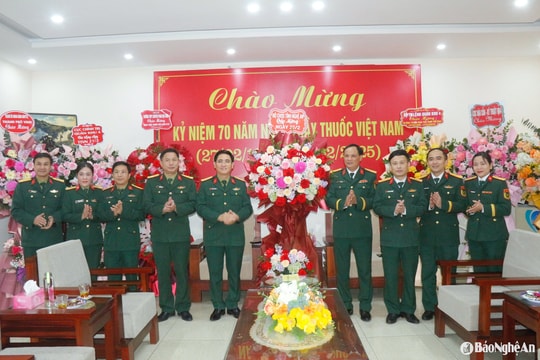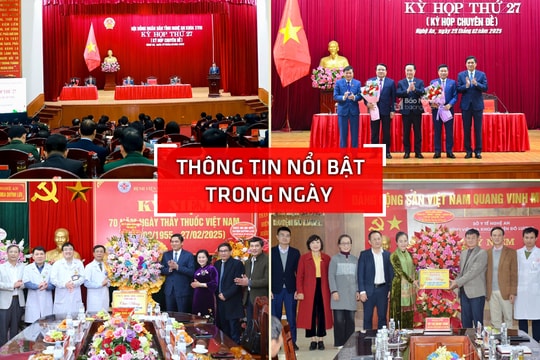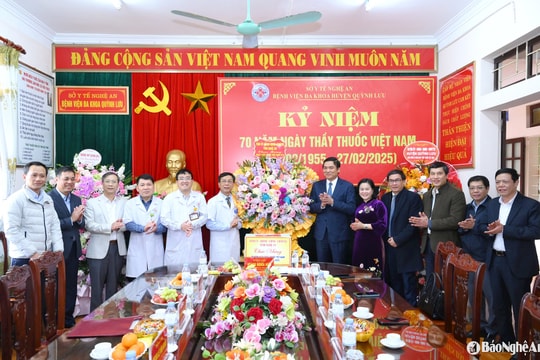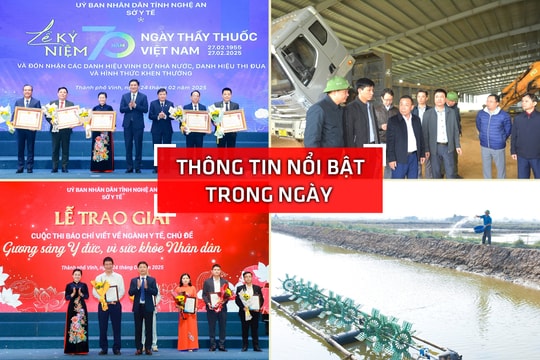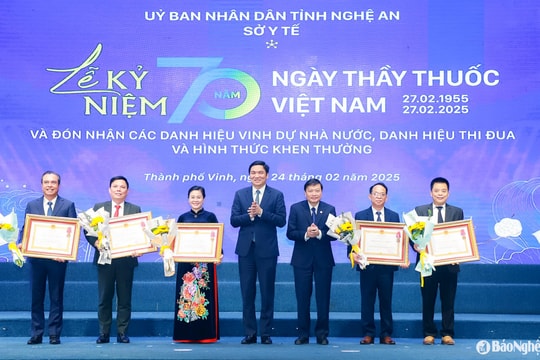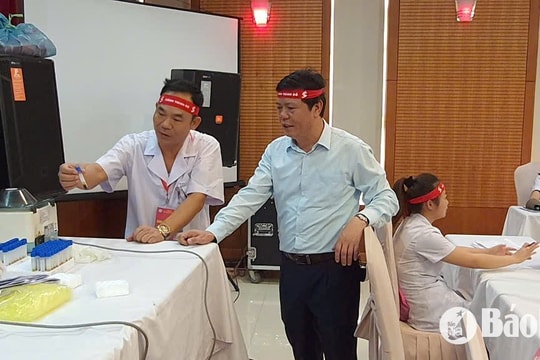Understanding and belief
(Baonghean.vn) - Health and medical care is a very special field. Every impact, whether it is just an unintentional or intentional word, or an action that is not considered enough, can have a huge impact on a person, even a person's whole life.
As a habit, on the occasion of the Vietnamese Doctors' Day on February 27th every year, I usually take some private time to look back and reflect on my career path. This year, from the practice of medical examination and treatment, I have some concerns.
On social media platforms, when someone posts information about a disease and searches for a reputable medical examination address, we easily come across shares like "trust me", "my family member took this medicine and was completely cured", "taking tobacco is safe, just try it"... Then we hear that in this mountainous area there is a "doctor" who is very good at treating, in that coastal area there is a "doctor" who is talented at prescribing medicine... Some people even guarantee that this "doctor" or that "woman" can completely cure, the number of people coming to see a doctor is so large, if they cannot be cured, they will return the money or treat... for free!
If we look at it from a positive perspective, those shares show concern, with the hope that patients will find the right doctor and the right medicine. However, if we look more deeply, there are many things to worry about: the responsibility of those patients to their own bodies; the responsibility of those who share the addresses of “doctors” without verifying the effectiveness with their relatives and the community around them.
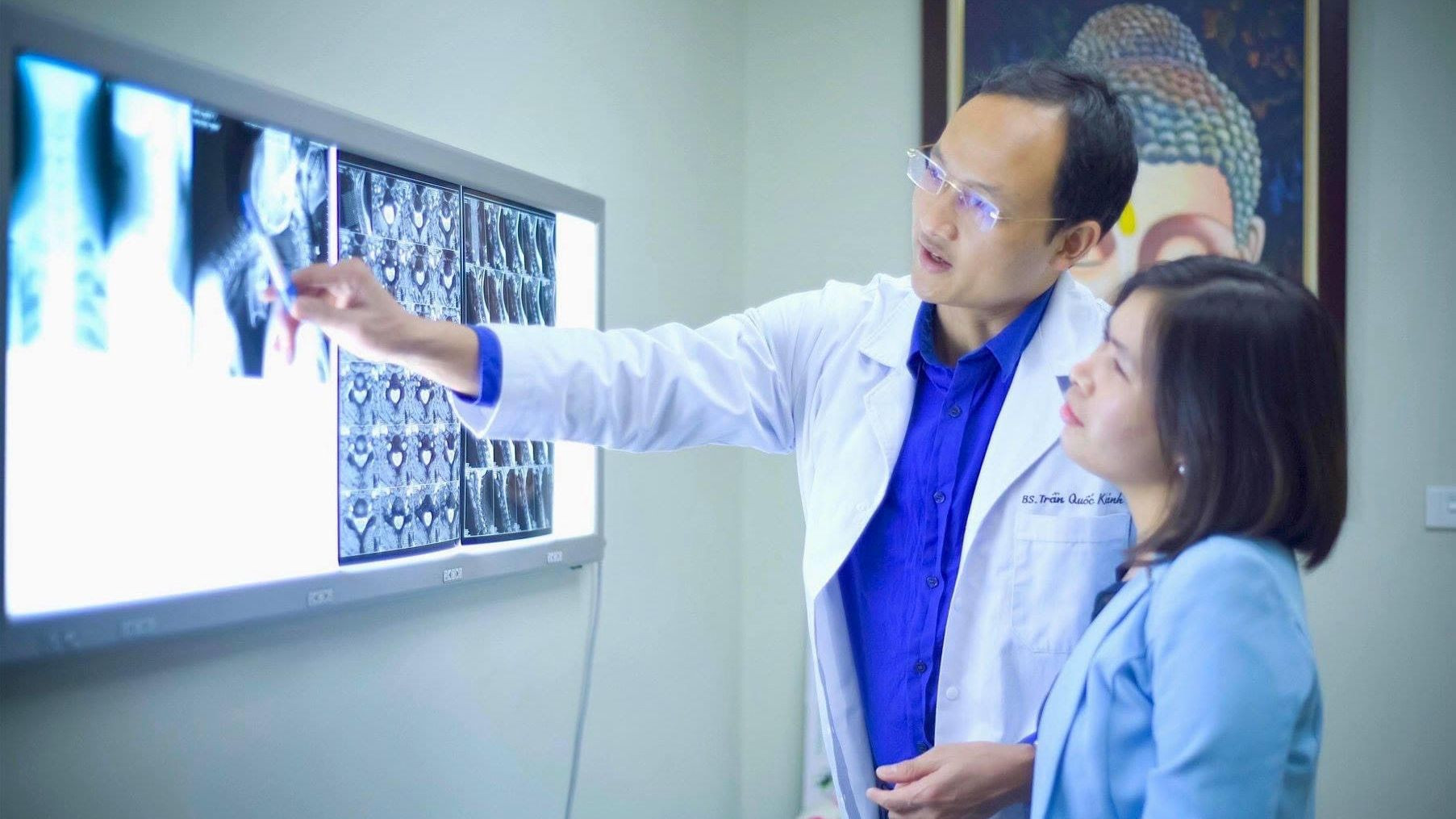 |
| Doctor Tran Quoc Khanh is examining and consulting a patient. Photo: NVCC |
How can we dare to go to traditional healers and witch doctors - who may not have a license to practice medicine - just because we "heard" about it? How can we dare to try medicine? How can we know what is in the herbal medicine and whether it is safe or not when the person who prescribes the medicine may not have had a day of formal medical education or training? I once watched a video provided by a patient's family when they came to my clinic for a consultation about back pain. In the video, a woman (the patient's family shared that this is a famous witch in the Northwest) is pointing at an MRI of the spine to explain to the patient about the injuries he suffered. I was shocked by the "specialized" language that witch doctor used, as well as the fact that she did not know the slightest bit of knowledge, even the basic anatomical landmarks on the film!
In health issues, even if a word comes from a good heart, we need to be careful, because it can affect the life, the life of a person. Those who innocently share the address of that herbalist or herbalist do not know that each person's illness is different, even if it is the same illness, the severity, stage and constitution of each person is different, so the approach, treatment and prognosis will not be the same. How can we, with just a few pieces of information provided by an acquaintance, "judge" that the illness is exactly the same as the illness we had, and then direct and advise them to go here and there.
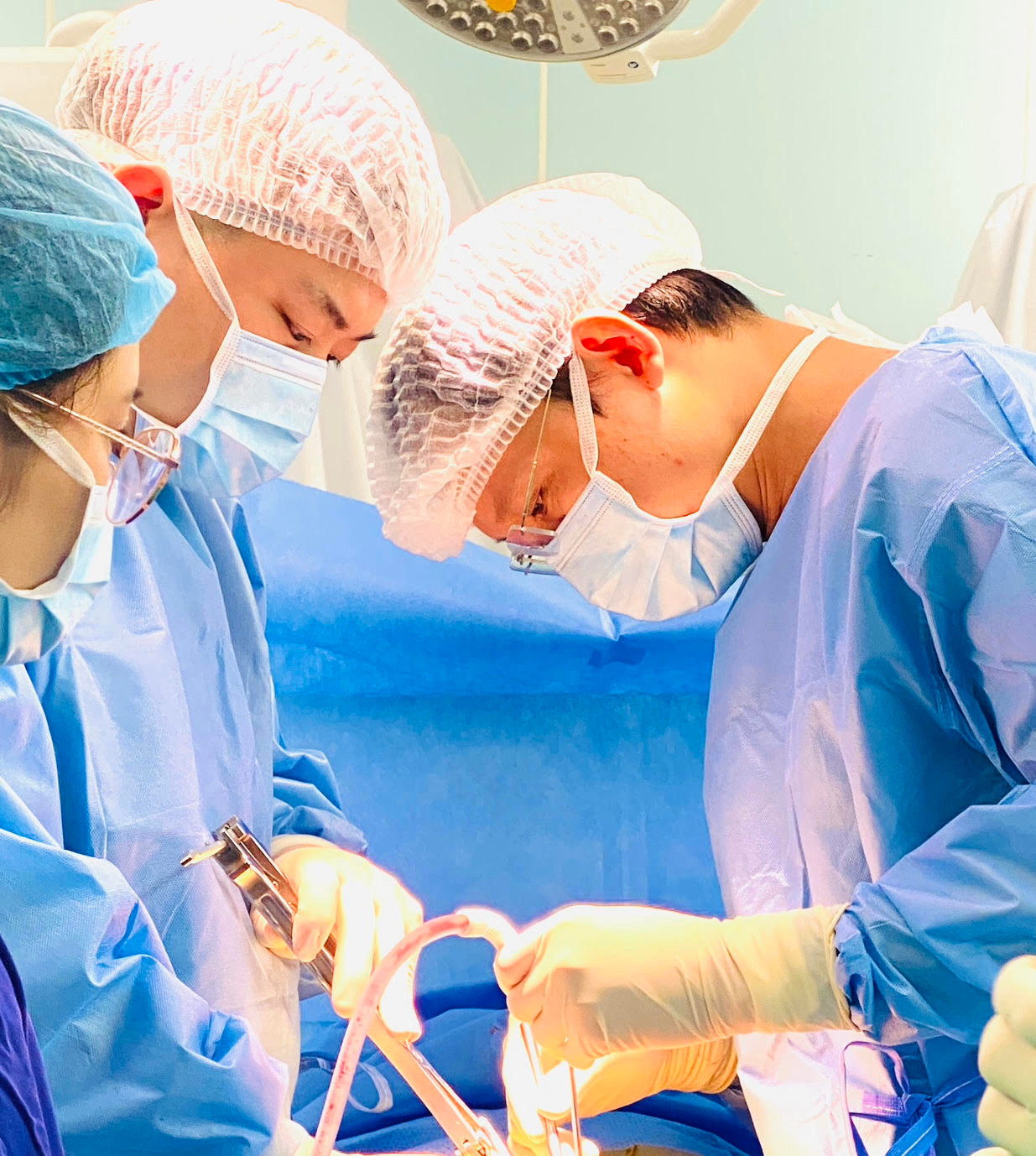 |
Doctor Tran Quoc Khanh (far right) and his colleagues perform surgery on the patient. Photo: NVCC |
I also worry a lot when in reality, in the shares on social networks, I see very few suggestions for patients to go to orthodox medical facilities, both Eastern and Western medicine. Many people (who know nothing about medicine) also give advice like "have to live with this disease for the rest of your life", "don't have surgery for this disease, it will paralyze you", "pick this leaf, cut that fruit... boil and drink it for a few days and you will be cured"... Personally, I think this advice shows both low culture and lack of responsibility for what they say. A well-trained doctor does not dare to give in-depth advice or prescribe from afar, or "diagnose the disease" with such certainty, let alone people who know nothing about medicine. The person who utters those sentences may never pay attention to it again, and sleep soundly under the covers at night, but it haunts the patient immensely, accompanied by the pain that the patient has to gnaw at and endure every night. We should only give advice or information to someone when they ask for it and we ourselves must have a firm understanding of that information before sharing it. Not to mention that this is information related to the health and life of others.
There may be many reasons for this situation (the habit of treating illnesses with “witch doctors” is deeply ingrained in the subconscious; people like to treat illnesses based on experience or other people’s advice; they are afraid of crowds and long waits at hospitals; they are afraid of high costs; they are afraid of doctors “detecting” serious illnesses…), but whatever the reason, in the 21st century, there is still so much useless and harmful advice like this, instead of advising to visit a legitimate medical facility, that is the problem that we all have to acknowledge and reflect on. The country is increasingly innovative, the culture and knowledge of the people are increasingly improved, so the words and actions of each individual require understanding, neatness and appropriateness.
February 27th this year also reminded me of another story - a story about the limitlessness of medical knowledge. Two years ago, a young man from West Lake (Hanoi) brought his mother to see a doctor because of back pain that spread to both legs. He had difficulty walking, and could only stand for a few minutes before having to find a chair to sit. After a careful examination and X-ray, I advised him to have surgery and shared that, with this disease, he should have been prescribed surgery several years ago. Hearing this, he shared: He had previously seen another doctor and that doctor said something that has haunted him to this day: "Your illness only requires medication and rehabilitation exercises, surgery is not possible. You should live with it for the rest of your life and not go to the doctor again."
It was that doctor's words that "nailed" his life for many years, even though he was in extreme pain, he did not seek further treatment anywhere else. This time, because my son persuaded him, showing him many of my surgical videos, he temporarily put aside his old default and went for another examination. After that examination, I performed a successful surgery, and his life turned a new page, the pain was gone and his quality of life was greatly improved.
I share this story not to lower my colleagues to increase my value, but to share the message: "Human knowledge is infinite, each person's understanding, no matter how excellent, is only limited". Therefore, in every consulting or treatment situation, when our capacity is not enough to help patients solve the problem, the best solution is to support, connect, and direct patients to more specialized medical facilities, to more excellent colleagues. That is, we have helped patients a lot, that is, we are creating more blessings for ourselves.
Personally, I always have a network of very good colleagues in different specialties such as neurology, rehabilitation, traditional medicine, cardiology, pediatrics, etc. And whenever there is a difficult case, a case beyond my diagnostic or treatment capacity, I always proactively contact to introduce the patient to colleagues who are more specialized and excellent than me, with the hope that the patient "when sick, pray to the right place". Only then, the patient can be cured and my mind - as a physician, always feels comfortable and happy./.


